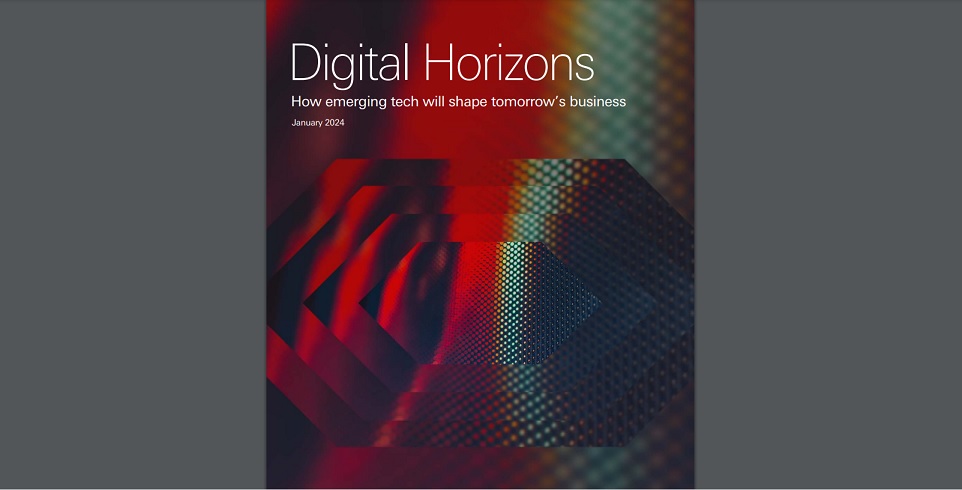
The power of human interaction will continue to play a critical role in business over the coming decade, even as technology such as AI, robotics and quantum computing dramatically reshapes entire sectors. HSBC surveyed 2,900 business leaders across eight markets globally (US, Mexico, the UK, China, Hong Kong, India, Singapore and the UAE) – and found that respondents plan to invest in their workforce to maximise the opportunities new technology will bring.
The world of business continues to hurtle towards a digital future. But successful businesses won’t be those that just implement the latest technologies. They’ll be ones that use them to motivate, empower and inspire their human workforce to perform at its best.




Working with renowned trend forecasters and interviewing leading technology experts, the HSBC Digital Horizons report unravels the four key trends shaping the business landscape between now and 2030. What does Generative AI mean for the future of your workforce? How will tech help keep your business ahead of the competition? Download HSBC report to future-proof your business today.
Takeaways – 4 key trends
HSBC’s research revealed four top trends which the banking giant says are set to drive fundamental change and bring new opportunities for businesses through digitalisation over the coming decade.
The Covid-19 pandemic exposed the fragility of global supply chains and gave rise to a new way of thinking about globalisation. Yet, businesses overwhelmingly believe that expansion means internationalisation. The story of borderless business will be one of resilient, diversified supply chains, challenging companies to manage their finances and inventories across borders without stifling growth.
By 2030 a company’s reputation and subsequent ability to attract the best clients and talent will be judged by its ethical implementation of AI and automation technologies. Newer generations entering the workforce by 2030 will expect access to a suite of advanced tools that alleviate mundane tasks, enable efficient workflows, provide helpful nudges and support better planning.
The combination of accelerated tech advancement and increased uncertainty in the world will favour more agile business models. To compete in this era, businesses will streamline processes and utilise automation to maximise their adaptability.
In this agile market, creator economy workers will flock to FLIT organisations, characterised by their: Flexible workforce; Lean processes; Innovative business models; and Tech-driven operations.
Standing out in a generic world will become the key to business survival in 2030. Amid an increase in generic AI content and other emerging technologies, successful companies will be able to generate fresh ideas and stay one step ahead of the competition.
Thriving companies will feel like research labs, devoted to creativity. They will foster an environment that nurtures innovation by giving employees the freedom to think differently.
„The fourth industrial revolution will transform businesses as new technology and ever-increasing levels of automation are integrated into the workplace,” comments Barry O’Byrne, CEO for Global Commercial Banking at HSBC.
“What our report makes clear is that successful businesses will not see a diminished role for human skillsets. To remain competitive, businesses will need to harness new technology to empower teams to perform better, more efficiently and more creatively. This agility will require new ways of thinking and working, and different capabilities.”
Banking 4.0 – „how was the experience for you”
„To be honest I think that Sinaia, your conference, is much better then Davos.”
Many more interesting quotes in the video below: